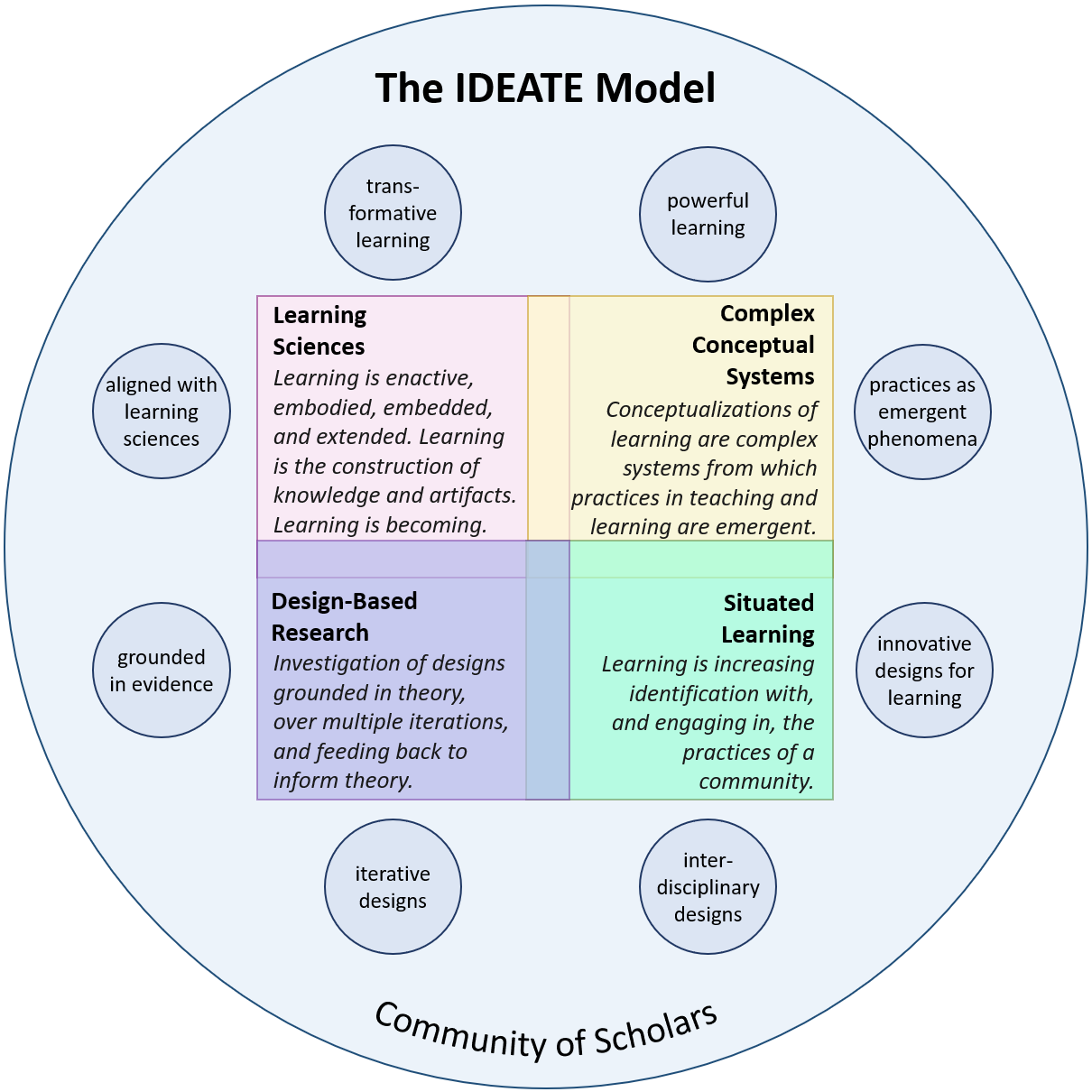IDEATE Model
 The IDEATE Community Model
The IDEATE Community ModelThe purpose of the Innovation and Design for Exploration and Analysis in Teaching Excellence (IDEATE) model is to enable faculty to take the lead in innovating and transforming practices in teaching and learning in a sustainable way. The model is grounded in four theoretical and methodological foundations-The Learning Sciences, Complex Conceptual Systems, Situated Learning, and Design-Based Research
The Learning Sciences—as interpreted through a set of interrelated theories including identity theory, constructionist theory, cultural- historical activity theory, and 4E cognition theory—frames learning as “becoming” and the construction of knowledge and artifacts. In this perspective learning, cognition, and knowledge are seen as enactive, embodied, embedded, and extended.
Complex Conceptual Systems describes conceptualizations of learning as complex conceptual systems. Practices, along with terminology commonly used, values, and cognitive filtering, are emergent phenomena. As with all complex systems, the relationship between conceptualizations of learning and practices are not direct linear causal relationships. How learning is conceptualized determines a set of action potentials which delineate a range of possible practices in teaching and learning. Introducing new practices into a context where there is a conceptualization of learning for which the practices are outside the range of practices delineated by the action potentials can lead to failure of the practices to be adopted or sustained.
In Situated Learning theory, learning is described as increasing identification with a community of practice and greater engagement with the practices of the community.
Design-Based Research is a research methodology for investigation of designs grounded in theory over multiple iterations aimed at feeding back to inform theory.
These foundations are operationalized through a community of scholars. In this community, educator and learner practices are addressed as emergent phenomena in complex conceptual systems through research of innovative and interdisciplinary designs for transformative and powerful learning grounded in evidence and aligned with learning sciences perspectives.
Scholarship of Teaching and Learning (SoTL)
Collaborative vs Cooperative Learning
Complex Conceptual Systems theory
Computer-Supported Collaborative Learning
Cultural-Historical Activity Theory
Design Based Research methodology
